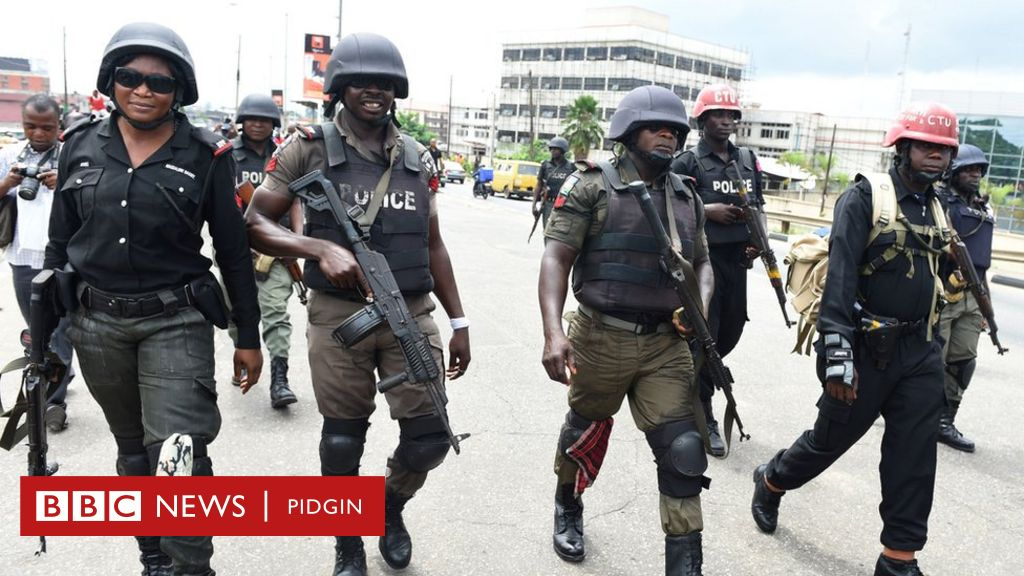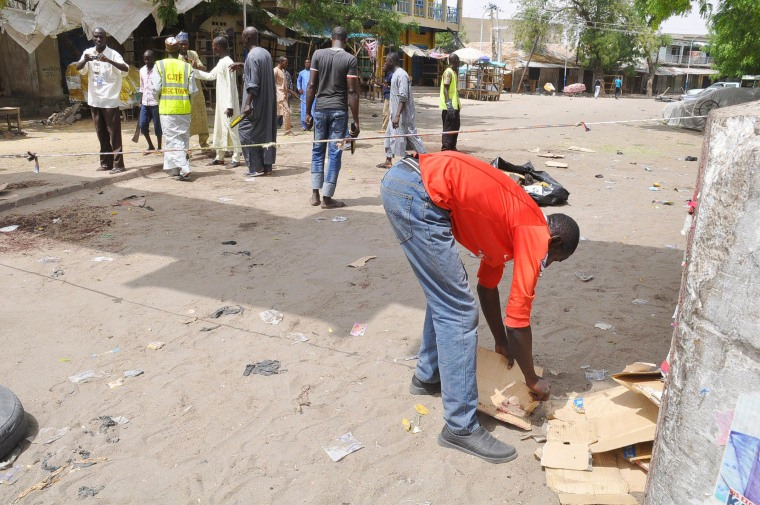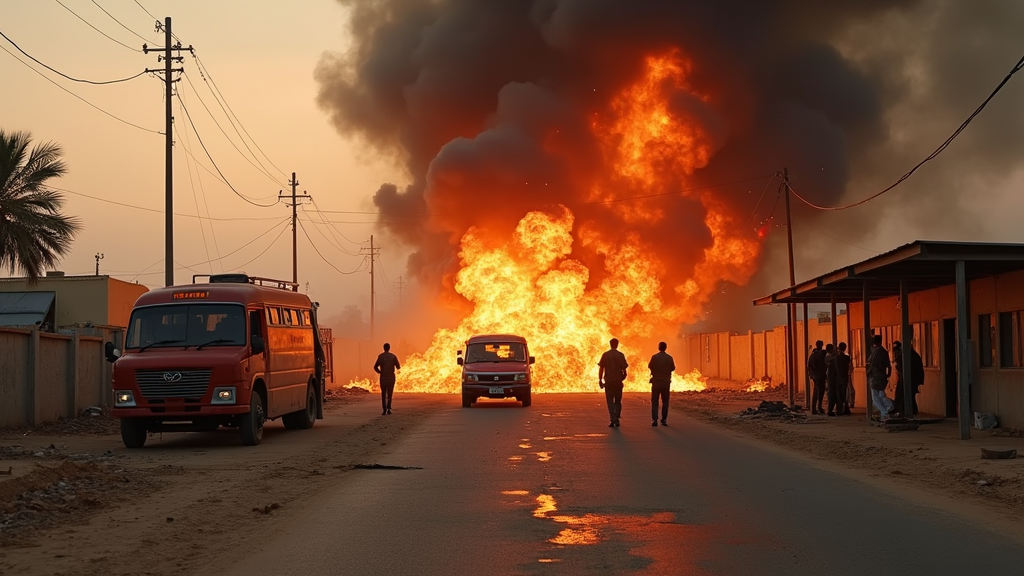Nigerian soldiers extortion has become a pressing issue that raises serious concerns about the safety and treatment of travelers in the region. Recently, numerous reports have surfaced about military checkpoints, particularly along the Enugu-Opi Road, where soldiers are allegedly blocking access and demanding bribes from motorists. This situation is particularly troubling for South East residents who are returning home for the festive season, as many have faced hours of delays and harassment. Videos circulating online depict the chaos at these military roadblocks, igniting widespread outrage and calls for accountability. As the military continues to play a controversial role in traveler safety in Nigeria, many are left questioning the motivations behind such aggressive enforcement tactics, especially when juxtaposed against ongoing issues like the rise of terrorism in other parts of the country.
The troubling phenomenon of military personnel soliciting bribes from civilians has been increasingly reported, particularly in the South East region of Nigeria. Instances of soldiers allegedly obstructing major thoroughfares, such as the Enugu-Opi Road, have raised alarms about the treatment of travelers during peak periods. With military checkpoint controversies dominating discussions, many citizens are expressing their frustrations over the apparent targeting and extortion by soldiers. This issue not only affects the immediate safety and well-being of individuals but also reflects a broader problem of law enforcement accountability in Nigeria. As operations like “Operation UDO KA” unfold, the scrutiny towards military interactions with the public remains crucial for ensuring equitable treatment for all citizens.
The Alarming Rise of Nigerian Soldiers Extortion
The alarming reports of Nigerian soldiers extorting travellers at military checkpoints have raised significant concerns among citizens. In the South East region, particularly along the Enugu-Opi Road, incidents of harassment and extortion have become increasingly common. With the festive season drawing thousands of residents back home, these roadblocks have turned into hotspots for alleged corruption, where soldiers reportedly demand bribes from motorists and passengers to pass through. This troubling trend not only impacts the financial wellbeing of individuals but also contributes to a growing climate of fear and mistrust towards security forces meant to protect the public.
The implications of such extortion extend beyond mere financial loss; they threaten the overall safety and security of travellers in Nigeria. As many citizens have voiced their frustrations, they question why these military checkpoints, rather than ensuring safety, have become avenues for exploitation. The military’s role in these roadblocks is under scrutiny, with many calling for accountability in the face of such allegations. Efforts must be made to address these issues head-on, ensuring that soldiers focus on their primary duty of safeguarding the public rather than exploiting them.
Military Checkpoint Controversies in the South East
The military checkpoint controversies in the South East highlight a troubling pattern of behaviour among security agencies. The Enugu-Opi Road is not just a conduit for travel; it has become emblematic of the broader issues faced by citizens in the region. Travellers have reported being subjected to humiliating searches, unnecessary delays, and, most disturbingly, extortion by soldiers. These experiences raise critical questions about the purpose of such checkpoints and whether they truly serve the interests of security or merely facilitate corrupt practices.
In light of these controversies, the role of Operation UDO KA, which is designed to combat insecurity in the South East, is being called into question. While the operation aims to enhance safety, the actions of soldiers at checkpoints suggest a disconnect between intention and execution. Citizens are increasingly frustrated, demanding transparency and reform to ensure that military presence on roads does not lead to abuse of power. Ensuring traveller safety in Nigeria must be a priority, and addressing these military checkpoint controversies is a crucial step in restoring public confidence.
The Impact of Roadblocks on Traveller Safety Nigeria
The impact of roadblocks on traveller safety in Nigeria, especially in the South East, is a pressing concern. Each year, the festive season sees an influx of people returning home, yet the presence of military roadblocks has made this journey fraught with anxiety. With reports of extortion and harassment, many are left questioning their safety. The Enugu-Opi Road, notorious for its checkpoints, has become a symbol of the challenges faced by commuters, who must navigate not only the risk of armed attacks but also the threat of corruption from those meant to protect them.
Furthermore, the atmosphere of fear created by these military roadblocks can deter individuals from undertaking necessary travel. The public’s trust in security personnel is eroded when they experience or witness extortion at the hands of soldiers. This not only affects individual journeys but also the broader perception of security in Nigeria. It is essential for authorities to re-evaluate the purpose and conduct of military operations at these checkpoints, ensuring they prioritize the safety and rights of every Nigerian traveller.
Enugu-Opi Road Issues: A Call for Change
The ongoing issues on the Enugu-Opi Road have sparked a public outcry for change. This road, vital for connecting various communities, has unfortunately become synonymous with extortion and insecurity. The recent reports of soldiers allegedly blocking this major route and demanding bribes have highlighted the urgent need for reform. As the festive season approaches, the stakes are higher, with many families relying on this road for reunions and celebrations. The continued harassment by military personnel is not only an inconvenience but a violation of the rights of travellers.
In response to these challenges, community leaders and activists have begun to mobilize efforts to advocate for safer travel conditions. There is a growing consensus that the military must be held accountable for their actions at checkpoints. The public is calling for better training for soldiers, stricter regulations on military conduct, and increased oversight to prevent the abuse of power. Addressing the Enugu-Opi Road issues is not merely about improving travel conditions; it is about restoring dignity and trust among the people who rely on these vital routes.
Operation UDO KA: Effectiveness and Accountability
Operation UDO KA was initiated with the aim of tackling insecurity in the South East region, yet its effectiveness is being questioned amid claims of extortion and harassment at military checkpoints. While the operation is intended to provide safety, the experiences of travellers suggest a troubling disconnect between its objectives and execution. The recent incidents on the Enugu-Opi Road illustrate that, instead of providing a secure environment, soldiers may be contributing to a culture of fear and corruption. This raises important questions about the accountability of military operations in the region.
Citizens are demanding transparency and accountability from the military, urging officials to investigate these allegations of misconduct. The success of Operation UDO KA hinges on its ability to genuinely protect the populace rather than exploit them. As the public continues to voice their concerns, it is crucial for military leadership to take these claims seriously and implement reforms that will restore public trust and ensure that safety is prioritized over extortion.
The Role of Community Voices in Addressing Militarization
Community voices play a vital role in addressing the issues of militarization and extortion in the South East. As the recent incidents on the Enugu-Opi Road have shown, it is the residents who bear the brunt of military actions, and their experiences must be heard. Activism and community organization are essential in pushing back against the abuses of power by security forces. Local leaders and citizens alike are coming together to advocate for their rights, calling for an end to the unlawful extortion and demanding that their safety be respected.
These community efforts can lead to greater awareness and push for policy changes that hold security personnel accountable for their actions. It is crucial for citizens to document their experiences and share them widely to increase pressure on authorities to act. By amplifying these voices, communities can work towards a safer environment and a military presence that genuinely serves to protect rather than exploit. The call for justice and reform is growing louder, and it is essential that it is met with action by those in power.
Public Reactions to Military Checkpoints and Extortion
Public reactions to the military checkpoints and reports of extortion in the South East have been overwhelmingly negative. Many Nigerians express outrage at the treatment they receive from soldiers, particularly during the busy holiday travel periods. Social media has become a platform for individuals to share their experiences, with videos and testimonies highlighting the alleged inhumane actions of military personnel. This collective frustration is not just about roadblocks; it reflects a deeper sentiment about the need for accountability and respect for citizens’ rights.
The public outcry has prompted discussions about the broader implications of militarization in the region. Many citizens are questioning why such heavy military presence is needed in the South East compared to other parts of Nigeria, where similar security concerns exist. This disparity in treatment has fueled a sense of injustice, leading to calls for a reassessment of military operations and their impact on the lives of ordinary Nigerians. The demand for change is clear, and it is essential for officials to respond to these grievances meaningfully.
Addressing the Challenges of Travel During Festive Seasons
The challenges of travel during festive seasons in Nigeria, particularly in the South East, cannot be understated. With increased traffic and the need for families to reunite, the presence of military checkpoints raises significant concerns. Many travellers fear being caught in long queues, subjected to harassment or extortion, which can mar the joyous occasion of the holidays. The Enugu-Opi Road, notorious for such issues, serves as a reminder of the need for better management of travel conditions during peak periods.
To address these challenges, local authorities and the military must collaborate to ensure that checkpoints are effectively managed, focusing on safety rather than exploitation. Improved communication about the purpose of military presence and the establishment of clear guidelines for soldiers operating at checkpoints can help alleviate tensions. By prioritizing traveller safety and dignity, officials can foster a more positive experience during festive seasons, allowing Nigerians to celebrate without the looming anxiety of extortion and abuse.
The Future of Security Operations in Nigeria
The future of security operations in Nigeria hinges on the ability of military and law enforcement agencies to adapt to the changing needs and realities of the populace. The recent incidents of alleged extortion at military checkpoints in the South East illustrate a critical need for reform. Security operations must evolve to prioritize the protection of citizens’ rights while effectively combating insecurity. This balance is crucial for restoring public trust and ensuring that security personnel are seen as allies rather than oppressors.
As Nigeria continues to grapple with security challenges, it is imperative that the lessons learned from the current controversies inform future operations. Engaging with communities, listening to their concerns, and holding personnel accountable for misconduct will be vital steps in creating a more effective security framework. The goal should be a security apparatus that not only addresses the threats facing the nation but also upholds the dignity and rights of all Nigerians, ensuring that everyone can travel safely and freely.
Frequently Asked Questions
What are the allegations regarding Nigerian soldiers extortion at South East roadblocks?
Nigerian soldiers have been accused of extorting money from travellers at military checkpoints, particularly on the Enugu-Opi Road. This alleged extortion has led to chaos, with many residents stranded for hours during their holiday travels.
How does the extortion by Nigerian soldiers affect traveller safety in Nigeria?
The extortion practices by Nigerian soldiers at military checkpoints significantly compromise traveller safety in Nigeria. Many individuals report feeling unsafe and humiliated while being subjected to harassment and demands for bribes at these roadblocks, particularly in the South East.
What is the public reaction to military checkpoint controversies in the South East?
The public has expressed outrage over military checkpoint controversies, especially regarding the alleged extortion by Nigerian soldiers. Many are demanding government intervention to address the inhumane treatment and the perception that such militarization is disproportionately affecting the South East region.
What issues are reported on the Enugu-Opi Road related to Nigerian soldiers extortion?
The Enugu-Opi Road has become notorious for issues related to Nigerian soldiers extortion, with reports of long delays for motorists and demands for bribes at military checkpoints. This has raised concerns about safety and the impact of such practices on the community.
How does Operation UDO KA relate to the extortion incidents involving Nigerian soldiers?
Operation UDO KA, a military initiative in the South East, is connected to the extortion incidents as it involves the presence of soldiers at checkpoints. Allegations of extortion have led to criticisms of the operation’s effectiveness in ensuring traveller safety rather than contributing to harassment.
What steps can be taken to address the extortion by Nigerian soldiers at checkpoints?
Addressing the extortion by Nigerian soldiers at checkpoints may involve increased oversight and accountability measures from military leadership, public reporting mechanisms for incidents, and government intervention to ensure that travellers are treated fairly and safely.
Are there any legal actions being taken against Nigerian soldiers involved in extortion?
As of now, there have been calls for legal actions against Nigerian soldiers involved in extortion at checkpoints, but concrete measures and outcomes remain to be seen. Advocacy groups are pushing for investigations and accountability.
What are the implications of soldier extortion for the local community in the South East?
The implications of soldier extortion for the local community in the South East include a decline in trust towards security agencies, increased fear among residents, and potential economic impacts due to disrupted travel and trade activities during peak seasons.
| Key Points | Details |
|---|---|
| Alleged Extortion | Nigerian soldiers are accused of blocking the Enugu-Opi Road and extorting money from travelers. |
| Incident Date | December 25, 2024 |
| Public Outcry | Many citizens expressed outrage over the treatment received at military checkpoints, especially during festive seasons. |
| Checkpoint Conditions | Travelers reported being stranded for hours, with complaints of inhumane treatment from soldiers. |
| Comparative Safety | Travelers questioned why such militarization occurs predominantly in the South East while terrorists operate freely elsewhere. |
| Calls for Action | There are demands for government intervention to stop the extortion and militarization in the region. |
| Lack of Response | Attempts to reach military officials for comments went unanswered, highlighting a lack of accountability. |
Summary
Nigerian soldiers’ extortion practices have come to the forefront of public discourse as they are accused of blocking critical roads and targeting travelers in the South East. This troubling situation not only disrupts the holiday plans of many citizens but also raises significant concerns about the safety and treatment of individuals passing through military checkpoints. The ongoing allegations highlight a deeper issue of militarization and the need for urgent government intervention to protect the rights of citizens and restore order in the region.



